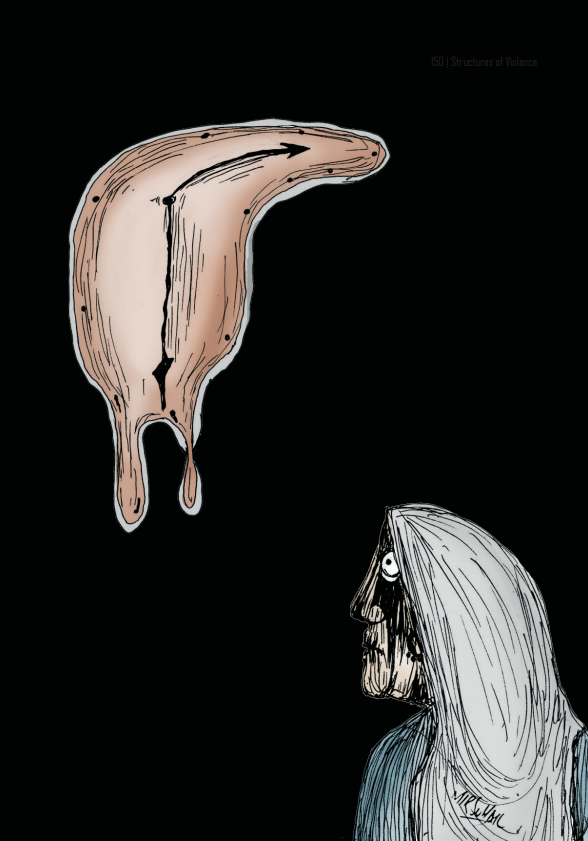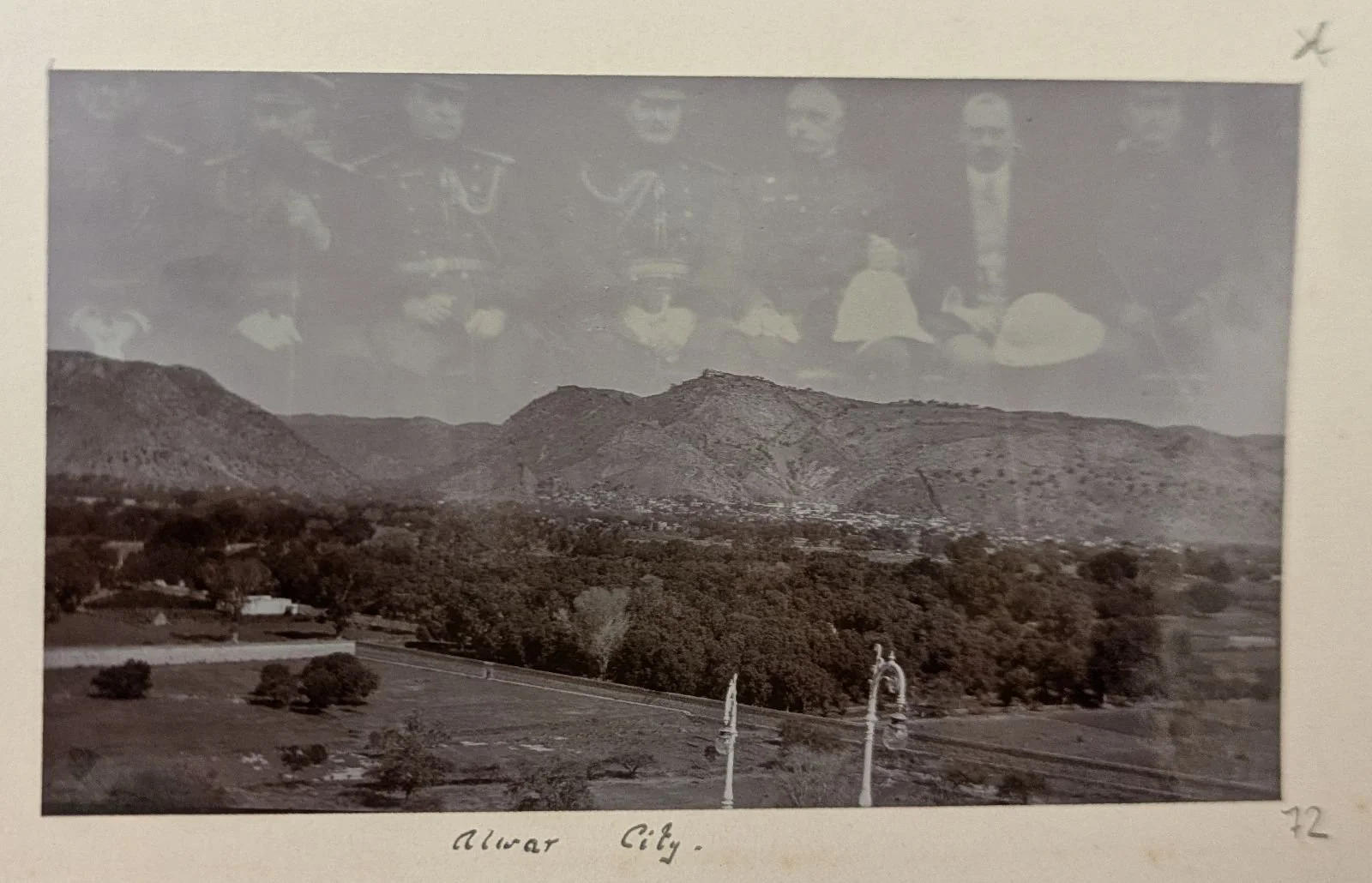Research
All in Pieces: the bodily politics of torture, self-immolation, and suicide bombing
Illustrated by Mir Suhail for Structures of Violence: The Indian State in Jammu and Kashmir (The International Peoples’ Tribunal on Human Rights and Justice in Indian-Administered Kashmir and The Association of Parents of Disappeared Persons)
Wherever we examine political power, we are likely to find bodies lurking just beneath the surface. Despite this fact, these bodies are often conspicuously absent from our attempts to understand politics. All in Pieces offers a corrective to this absence, asking how we might take these bodies seriously as both the subjects and objects of politics. I approach this question by turning to a study of forms of political violence whereby the body is destroyed. These are the messy and extreme forms of violence – the forms that remake the material body. In particular, I focus on torture, self-immolation, and suicide bombing. I illustrate the ways that violence, by materially transforming bodies and their relationships to the world around them, can produce power and manifest resistance. More specifically, I examine the role of the body in constituting both individual subjects and shared life-worlds. In doing so, I ask how violence, by unmaking the body, also has transformative effects on subjects and world alike.
The starting point for my analysis is the inescapability of bodily vulnerability. Queer theorists have long argued for the political necessity of recognizing that humans are not only interdependent, but also – more fundamentally – that we become who we are only in relation to other people. I extend this insight by turning to phenomenology, particularly the work of critical, feminist, and queer phenomenologists. In conversation with these thinkers, I argue that bodies are constituted by their relationships with each other, and with the world around them. Moreover, the world itself is constituted simultaneously through these ties. Using a strategy I describe as “improper phenomenology,” I think about the mutual constitution (and the mutual destruction) of body and world as material processes.
All in Pieces is grounded in a wide-ranging and diverse archive, bringing together materials that are rarely studied within political theory, and never placed in conversation. I examine over forty different sites of violence, which span across six continents and incorporate over eighty years of recent world history.
Queer ghosts, Jai Singh, and the Politics of Empire
“Alwar City” — with overprint? IOR Photo 17/4(72) - Presented to the India Office Library by the Earl Kitchener of Khartoum, 1 October 1959.
Publications
Sights of Violence: Self-Immolation at the Border | Polity (55.4), October 2023
Burning the Body: The Bodily Politics of Tibetan Self-Immolation | Theory & Event (23.3), July 2020
Public Scholarship & Media
“’Speculative Futures’ at Muhlenberg College” by Micaela Hood for Lehigh Valley News, March 2023
“Time, Torture, Trauma: The Scars of ‘Psychological’ Torture” in Shuddhashar Issue 24, “Body Politics,” May 2021

